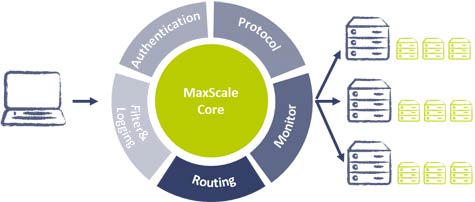For some time now MariaDB has been gaining traction as an open source relational database alternative to both MySQL and commercial offerings from Oracle and IBM. One of the less appreciated reasons for that shift is the availability of a database proxy software known as MariaDB MaxScale that abstracts away a lot of the complexity associated with trying to manage multiple relational database instances.
Today MariaDB Corp. announced it is making available a new version of MariaDB MaxScale that adds support for automatic failover and asynchronous replication, enhanced secured integration with open source Kafka messaging broker software.
At its core MariaDB MaxScale 2.0 is a multi-threaded, event-driven engine that creates a database proxy that decouples administrative functions from any particular instance of MariaDB. New functionality is incorporated into the core engine via a plug-in developed by MariaDB Corp.
Roger Bodamer, chief product officer at MariaDB Corp., says this approach makes it much simpler for database administrators to manage distributed instances of MariaDB at scale.
“It’s easier because you can now centralize tasks,” says Bodamer.
While there are more types of databases to manage than ever, relational databases remain the workhorses for many Web and transaction processing applications. Many of those applications have historically been deployed on either open source MySQL databases or proprietary databases from Oracle or IBM. MariaDB was created primarily as a reaction to Oracle’s decision to acquire MySQL. While MySQL continues to be an open source project, a consortium of vendors and IT organizations have been making contributions to the MariaDB project primarily because of concerns that Oracle might limit the growth of functionality being delivered via MySQL.
The degree to which those concerns are a matter of perception versus reality naturally differs. But as is often the case with perception, it’s only a matter of time before reality starts to reflect it.




